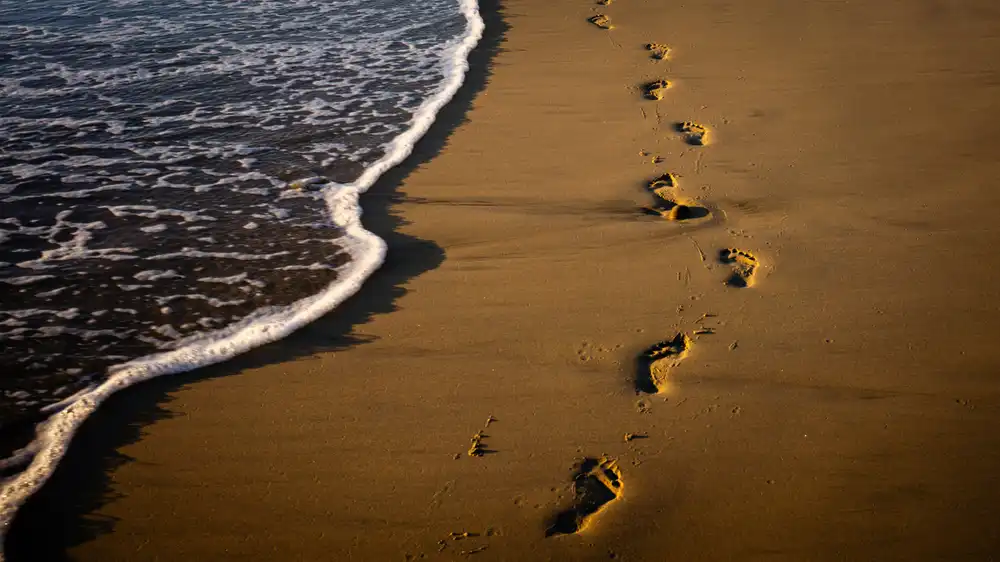For centuries, the beach has been more than just a place for sunbathing and swimming; it’s been a vibrant hub of entertainment, a playground for people of all ages. From the simplest of traditional games passed down through generations to the dazzling spectacle of modern tournaments, the beach has always been a place where people come together to have fun, compete, and create lasting memories. But did you ever wonder where these traditions came from? Let’s dive into the fascinating history of beach entertainment and uncover some surprising stories along the way!
The Early Days: Traditional Games and Seaside Amusements
In the early days, beach entertainment was largely driven by simple, low-tech activities that required little or no equipment.
Traditional Games
Many of the traditional beach games we know and love today have their roots in ancient cultures.
- Tag: A classic game of chase that has been played for centuries.
- Capture the Flag: A team-based game of strategy and skill.
- Sandcastle Building: A creative activity that has delighted children (and adults!) for generations.
- Skittles/Bowling: Early versions of bowling or skittles were often played on hard-packed sand.
Seaside Amusements
The Victorian era saw the rise of seaside resorts, which offered a variety of amusements for visitors.
- Punch and Judy Shows: Puppet shows that have been entertaining audiences for centuries.
- Donkey Rides: A popular activity for children.
- Bandstands: Live music performances were a common feature of seaside resorts.
- Bathing Machines: These wheeled contraptions allowed people to change into their bathing costumes in privacy and enter the water discreetly.
Ancient Sailors and Their Gambling Games
Let’s not forget the ancient mariners who spent weeks or months at sea. When they finally hit the beach, entertainment (and a little risk) was definitely on their minds!
- Dice Games: Sailors, known for their long voyages and downtime, often played dice games for entertainment and to pass the time. These games were simple, required minimal equipment, and could be played anywhere, including on the beach.
- Card Games: Similar to dice games, card games were also popular among sailors. They provided a mix of strategy and chance, making them an engaging way to gamble.
- Wager on Strength Games: Sailors also wagered on strength competitions, and other displays of physical prowess.
The 20th Century: The Rise of Beach Sports
The 20th century saw the rise of organized beach sports, which added a new dimension to beach entertainment.
Beach Volleyball
Beach volleyball originated in California in the 1920s and quickly spread to beaches around the world.
- Early Development: The game evolved from indoor volleyball and was initially played with larger teams.
- Olympic Sport: Beach volleyball became an Olympic sport in 1996, further solidifying its popularity.
- Professional Leagues: Professional beach volleyball leagues have emerged, attracting top athletes from around the world.
Surfing
Surfing has its roots in ancient Polynesian culture and gained popularity in the United States in the early 20th century.
- Cultural Origins: Surfing was an integral part of ancient Hawaiian culture.
- Modern Development: Surfing gained popularity in the United States in the early 20th century and spread to beaches around the world.
- Professional Surfing: Professional surfing competitions attract top surfers and large crowds.
Other Beach Sports
Other popular beach sports include:
- Beach Soccer: A fast-paced and exciting variation of soccer.
- Beach Tennis: A combination of tennis and volleyball.
- Frisbee Golf: A challenging and fun game that combines frisbee throwing with the rules of golf.
Modern Tournaments: High-Stakes Competition on the Sand
Today, beach tournaments attract athletes and spectators from around the globe.
Beach Volleyball Tournaments
Beach volleyball tournaments offer a high level of competition and prize money.
- Professional Players: Top beach volleyball players compete in tournaments around the world.
- Sponsorships: Beach volleyball tournaments attract sponsorships from major brands.
- Large Crowds: Beach volleyball tournaments draw large crowds of spectators.
Surfing Competitions
Surfing competitions showcase the skill and athleticism of top surfers.
- World Surf League (WSL): The WSL organizes professional surfing competitions around the world.
- Iconic Events: Events like the Pipeline Masters in Hawaii are legendary in the surfing world.
- Global Audience: Surfing competitions attract a global audience.
The Evolution of Beachside Entertainment Tech
How tech has enhanced games!
- **Music:** Portable Bluetooth speakers replacing the need for boomboxes.
- **Water Sports:** Improved board design, lighter and more accessible for more people.
- **Coverage:** Drones film competitions, so everyone can enjoy the views.
Examples and Stories
Let’s bring this history to life with some specific examples:
The Waikiki Beach Boys:
The Waikiki Beach Boys were a group of legendary Hawaiian surfers who popularized surfing in the early 20th century. They traveled the world, demonstrating their skills and spreading the Aloha spirit.
The AVP Tour:
The AVP Tour is the premier professional beach volleyball league in the United States. It showcases the skill and athleticism of top beach volleyball players and attracts large crowds of spectators.
Conclusion: A Legacy of Fun and Competition
From traditional games to modern tournaments, the beach has always been a place of entertainment and competition. Whether you’re building sandcastles, spiking volleyballs, or catching waves, the beach offers something for everyone. So, embrace the sun, sand, and sea, and continue the legacy of fun and competition on the beach!
FAQ: Your Beach Entertainment Questions Answered
What are some fun beach games for kids?
Sandcastle building, tag, frisbee, and beach soccer are all great options.
What are some essential items to bring to a beach tournament?
Sunscreen, hat, sunglasses, water bottle, and comfortable clothing are essential.
How can I find out about local beach events?
Check local tourism websites, social media pages, and community bulletin boards.
What are some tips for being a responsible beachgoer?
Dispose of your trash properly, respect wildlife, and avoid disturbing the natural environment.

